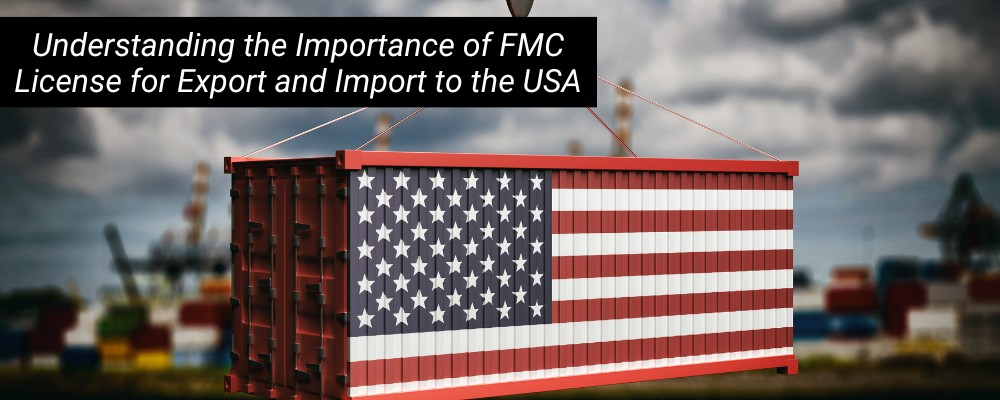
Exporting goods to the United States can be a lucrative business opportunity, but it comes with its fair share of regulations. One crucial requirement that exporters and importers must adhere to is obtaining an FMC (Federal Maritime Commission) license. In this article, we will explore why the FMC license is essential for international trade, what terms you should know about regarding the FMC, and the benefits associated with having an FMC license.
Understanding the Federal Maritime Commission (FMC):
The Federal Maritime Commission is an autonomous government organization established in 1961 in Washington D.C., responsible for regulating international ocean transportation. Its primary goal is to ensure fair practices within maritime commerce while protecting both consumers and carriers.
Key Terms Associated with FMC License:
To fully comprehend how the FMC operates, let’s familiarize ourselves with some important terms:
1. VOCC – Visual Operating Common Carrier: Referring more specifically to shipping companies that provide ocean transportation services between countries, including those involving the United States.
2. NVOCC – Non-Visual Operating Common Carrier: Similar in responsibilities to VOCCs; however, NVOCCs issue their own “house bills” rather than operating vessels directly.
3. Freight Forwarders or Forwarding Agents: These are multi-functional agents who manage product flow from market clients to distribution locations by partnering with one or more carriers.
4. OTI – Ocean Transportation Intermediary: An OTI refers specifically to a U.S.-based licensed maritime transportation broker that assists exporters and importers in securing favorable shipping rates and complying with rules.
Significance of Obtaining an FMC License:
Now that we understand these key terms related to the FCM license let us delve into why obtaining this license is vital for exporters/importers:
1. Insurance Coverage:
Having an active FCM license grants access to insurance coverage, providing protection against various risks during the transportation process. This coverage ensures financial security and peace of mind for exporters and importers.
2. Compliance with International Standards:
The FMC license guarantees adherence to fair market international standards. By obtaining this license, exporters/importers can demonstrate their commitment to operating within ethical guidelines and best practices.
3. Dispute Resolution Services:
In case any disputes or conflicts arise during the export/import process, having an FCM license allows access to consumer affairs and dispute resolution services provided by the Federal Maritime Commission. These services are designed to resolve issues efficiently and fairly without unnecessary delays.
4. Competitive Shipping Rates:
Through their partnership with licensed OTIs, exporters/importers with an FMC license can benefit from negotiated shipping rates that offer cost savings compared to non-licensed entities. This competitive advantage is invaluable in maintaining profitability while expanding business operations.
5. Knowledgeable Guidance:
Navigating through complex international trade regulations can be overwhelming for novice traders. However, working with licensed carriers under the supervision of the FMC provides access to experienced professionals who possess comprehensive knowledge regarding shipping procedures, documentation requirements, customs protocols, etc.
Obtaining an FMC license is essential for anyone involved in exporting or importing goods into the United States due to its numerous advantages such as insurance coverage, compliance with international standards, dispute resolution services, competitive shipping rates, and expert guidance throughout the entire process. It enables businesses to operate legally while ensuring customer satisfaction and long-term success in a highly regulated industry.








